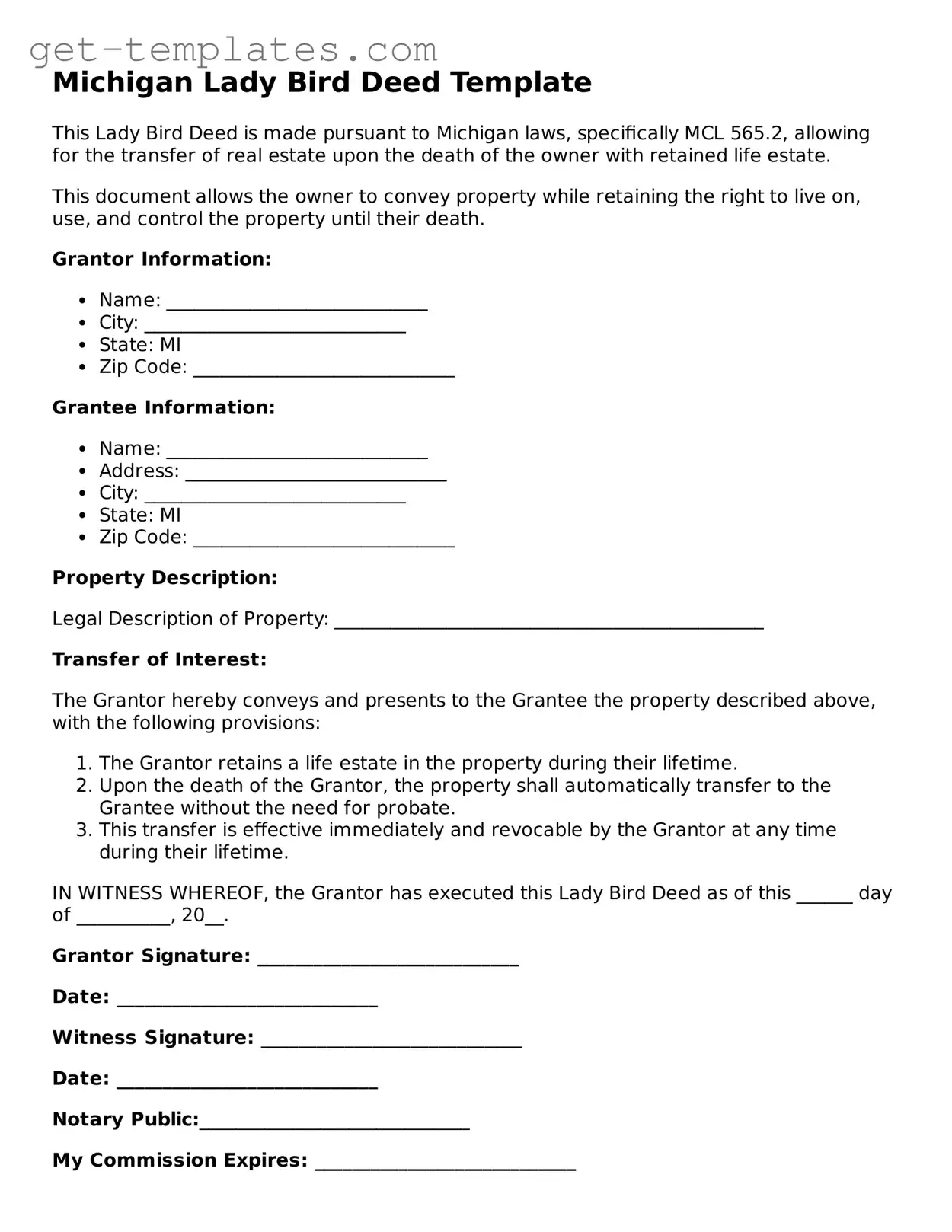Attorney-Approved Lady Bird Deed Document for Michigan
The Michigan Lady Bird Deed is a legal document that allows property owners to transfer their real estate to beneficiaries while retaining control of the property during their lifetime. This unique form of deed provides a seamless way to avoid probate and ensure a smooth transition of ownership after death. Understanding its features and benefits can help property owners make informed decisions about their estate planning.
Get Document Online

Attorney-Approved Lady Bird Deed Document for Michigan
Get Document Online
You’re halfway through — finish the form
Finish Lady Bird Deed online — edit, save, download made easy.
Get Document Online
or
⇓ PDF Form
